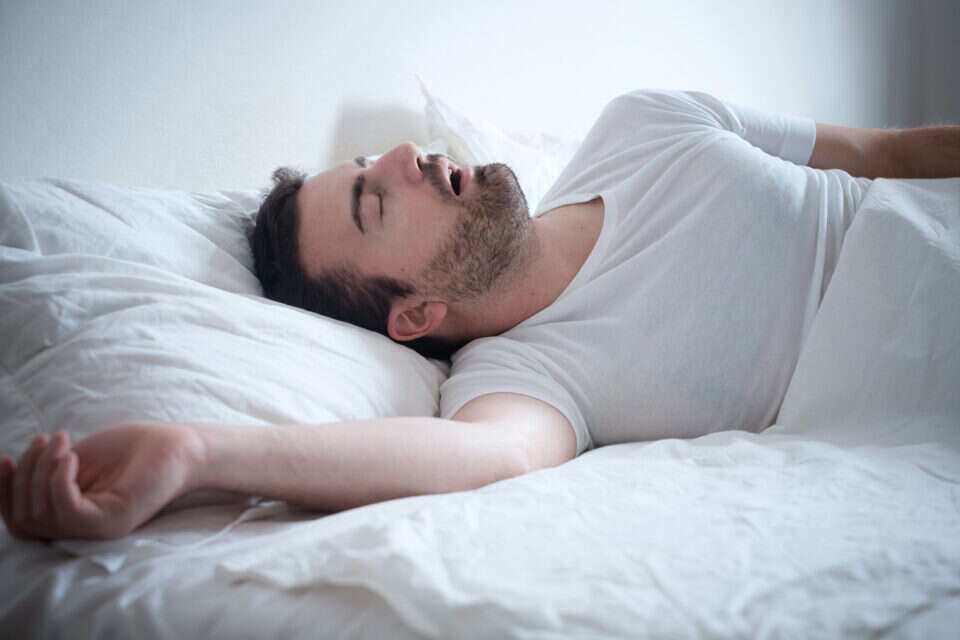Sleep is important for the body regularly, and especially during these troubled days, when the many worries that weigh us down cause us great distress and make every moment of rest more blessed than ever. The problem is that the great stress we are under makes it difficult for most of us to fall asleep. Even in calmer countries, crowds report sleep problems: according to surveys conducted in the United States, more than a third of the population there suffers from difficulty falling asleep. In Israel, one can guess that the numbers are sleeplessly high even for experts.
Lack of proper sleep can lead to many problems, such as increased risk of cardiovascular disease, type 2 diabetes, obesity, stress, anxiety, depression, learning disabilities, memory problems, and mood swings. We've used ChatGPT to gather 20 tips to help you fall asleep at night:
Set a sleep schedule
Fixing your sleep and wakefulness schedule helps regulate your internal clock, making it easier to fall asleep and wake up consistently.
Lower the room temperature
Maintaining a temperature of 15.6-19.4°C can help the body regulate heat and promote falling asleep.
Comfort Equals Gold
Invest in a comfortable mattress, pillow and bedding to ensure a pleasant sleeping environment.
Try aromatherapy
Essential oils and aromatherapy can help promote relaxation and improve sleep quality.
Don't look at the clock
Repeatedly staring at the clock while trying to fall asleep can worsen sleep-related anxiety. It's best to turn the clock so you don't see it, or even take it out of the room.
Try the Breathing Method 4-7-8
This cyclic breathing technique, developed by Dr. Andrew Weil, can help calm you down and prepare your body for restful sleep. It is performed by placing the tongue behind the upper teeth, removing all the air from the lungs through the mouth in such a way as to make a sound, closing the mouth, inhaling air through the nose while counting to 4, holding the air while counting to 7, opening the mouth and exhaling the air through it slowly and loudly while counting to 8, and then again.
Listen to relaxing music
Soothing music can improve sleep onset, sleep quality and duration, and reduce anxiety.
Let the Light guide you
Balanced exposure to natural light during the day and the use of blackout curtains at night can improve the sleep and wake cycle by stabilizing the 'circadian rhythm'.
Avoid sleeping during the day
It's true that a tonda or siesta is thought to help shift post-lunch fatigue and stay focused during the second half of a workday, but long or late naps can negatively affect the quality of sleep at night.
Pay attention to food intake
It is best not to eat at least an hour or two before bedtime. The types of food you consume during the lunch and evening hours can also affect your sleep. In this article you will find details of foods that are more suitable for morning or early lunch and are best avoided in the evening.
Pay attention to physical activity
Engaging in moderate or intense physical activity during the day can improve sleep quality. However, physical activity close to sleep impairs its quality. It is best to exercise in the morning, or late afternoon at the latest, rather than in the evening.
Try yoga, meditation, etc.
These techniques can relieve stress and improve the quality and duration of your sleep.
Devices – not kosher
Electronic devices emit blue light, which can disrupt sleep. Try to stop using them at least an hour before bedtime.
Write before bed
Keeping a diary or making a to-do list for the next day can calm the brain and prepare it for rest, reducing worry and stress before bed.
Read before bed
Reading a physical book before bed can improve sleep quality. It is best to avoid electronic books, for the same reason we mentioned earlier to avoid using smartphones, computers and televisions an hour before bedtime.
Limit caffeine intake
In case you forgot, caffeine can negatively affect sleep quality. Avoid it in the hours before bedtime.
Pay attention to the sleeping position
Although it was once believed that sleeping on your back was best, it is now accepted that it can lead to airway obstruction and snoring, and that sleeping on your side provides the best quality sleep.
Focus on trying to stay awake
Paradoxically, sometimes just aiming to stay awake can reduce anxiety and help you fall asleep.
Imagine happy things
Think of a peaceful and relaxing environment that will distract you from disturbing thoughts and make you feel safe and relaxed.
Try supplements to improve sleep
Supplements like magnesium and melatonin may aid sleep. However, it is important to consult a doctor before trying them.
Wrong? We'll fix it! If you find a mistake in the article, please share with us

